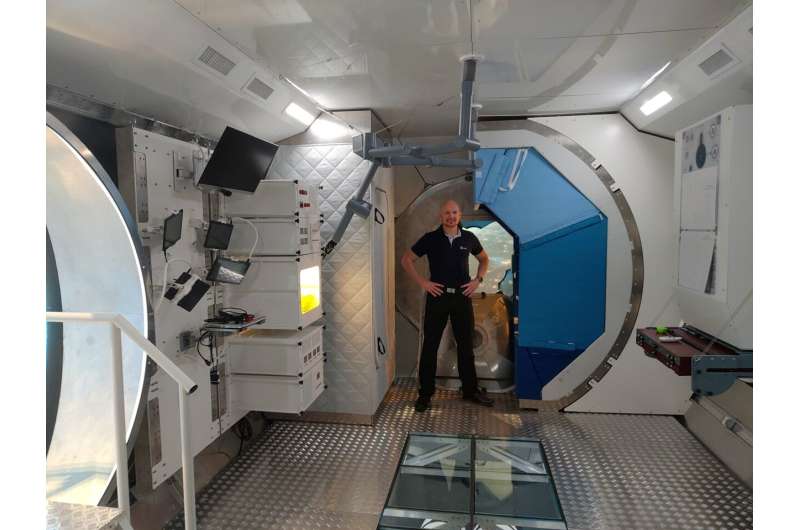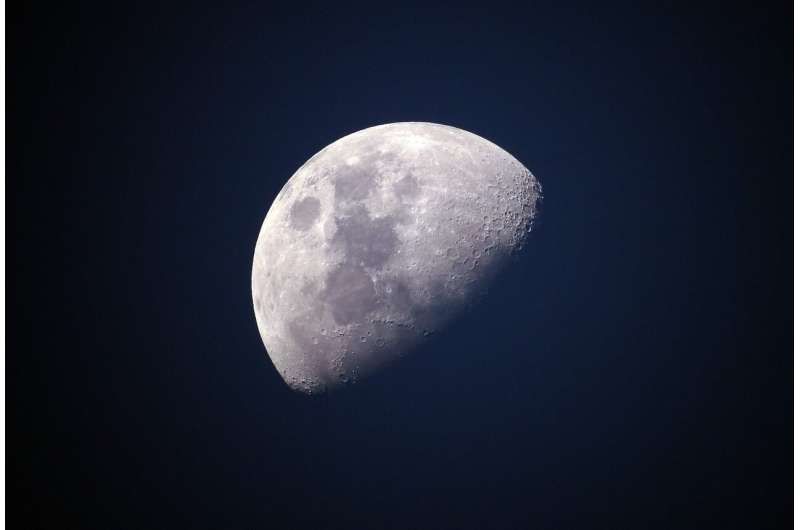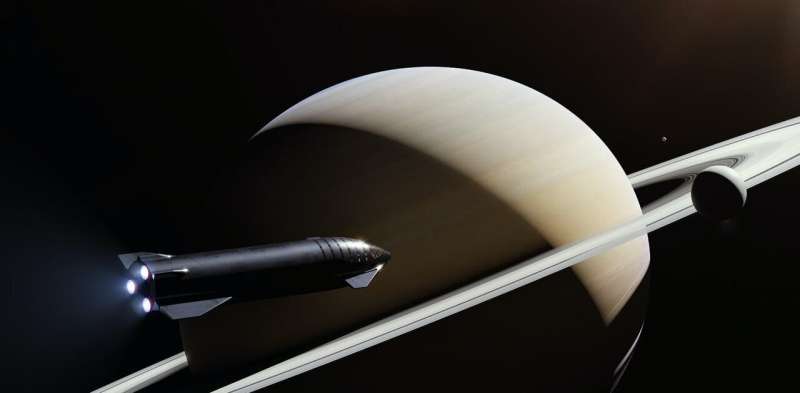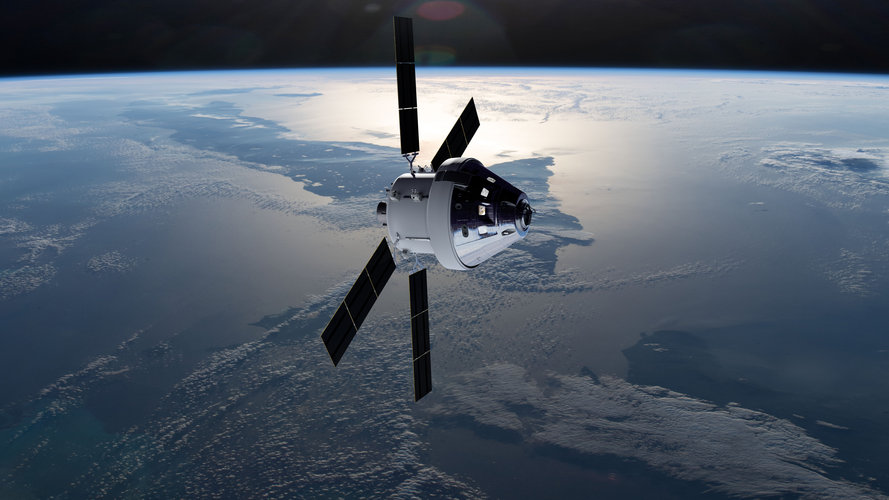
Copernical Team
Sea Level to rise up to a foot by 2050
 Coastal flooding will increase significantly over the next 30 years because of sea level rise, according to a new report by an interagency sea level rise task force that includes NASA, the National Oceanic and Atmospheric Administration (NOAA), and other federal agencies. Titled Global and Regional Sea Level Rise Scenarios for the United States, the Feb. 15 report concludes that sea level along
Coastal flooding will increase significantly over the next 30 years because of sea level rise, according to a new report by an interagency sea level rise task force that includes NASA, the National Oceanic and Atmospheric Administration (NOAA), and other federal agencies. Titled Global and Regional Sea Level Rise Scenarios for the United States, the Feb. 15 report concludes that sea level along ABB secures order for near real-time satellite imaging technology
 ABB has been awarded a contract worth around $30 million by the Canadian data and analytics company EarthDaily Analytics Corp. (EDA) to develop and manufacture next-generation multispectral imaging systems to be placed on 10 satellites (including an in-orbit spare) that will circle the Earth. The order was booked in the first quarter of 2022.
Multispectral imaging systems capture data at s
ABB has been awarded a contract worth around $30 million by the Canadian data and analytics company EarthDaily Analytics Corp. (EDA) to develop and manufacture next-generation multispectral imaging systems to be placed on 10 satellites (including an in-orbit spare) that will circle the Earth. The order was booked in the first quarter of 2022.
Multispectral imaging systems capture data at s SpaceX successfully launches 46 Starlink satellites from Florida
 SpaceX successfully launched 46 of the company's own Starlink broadband Internet communications satellites from Florida on Monday.
The mission, Starlink 4-8, was the first since the company lost about 40 of the Starlink satellites on Feb. 4 during a solar storm that thickened the air and caused the satellites to burn up as they crashed back through the atmosphere.
The Falcon 9 ro
SpaceX successfully launched 46 of the company's own Starlink broadband Internet communications satellites from Florida on Monday.
The mission, Starlink 4-8, was the first since the company lost about 40 of the Starlink satellites on Feb. 4 during a solar storm that thickened the air and caused the satellites to burn up as they crashed back through the atmosphere.
The Falcon 9 ro Ahead of lunar rocket crash, astronomers call for better space debris tracking
 A mixup among leading astronomers about a rocket that will crash into the moon on March 4 has led to calls for better debris tracking of Deep Space manufactured objects.
Independent astronomer Bill Gray of Maine, one of few astronomers who track human-made objects in Deep Space, discovered in January that a section of a discarded rocket would crash into the moon.
Due to earlier m
A mixup among leading astronomers about a rocket that will crash into the moon on March 4 has led to calls for better debris tracking of Deep Space manufactured objects.
Independent astronomer Bill Gray of Maine, one of few astronomers who track human-made objects in Deep Space, discovered in January that a section of a discarded rocket would crash into the moon.
Due to earlier m Image: Getting I-HAB ready for lunar orbit

ESA astronaut Alexander Gerst visited Thales Alenia Space in Turin recently to test out and provide feedback on accommodations for the next human outpost in space, the lunar Gateway.
As the name implies, the Gateway will be located within the moon's orbit and is being built by Thales Alenia Space on behalf of ESA. Among its components is the International Habitation Module or I-Hab.
As crew quarters are designed with humans in mind, Alex both toured the mock-up and stepped into the crew quarter simulator to provide some experienced feedback. After two missions to the International Space Station—Blue Dot (2014) and Horizons (2018)—totalling 362 days in space, Alex is no stranger to living in special conditions.
Using virtual gear, Alex experienced an immersive environment representing the interior of I-Hab, as if he were present on the lunar Gateway in orbit around the moon. What did he think?
Overall, the feedback was positive. Alex provided some recommendations that will help Thales Alenia Space's design team improve the next iterations.
Alex and fellow ESA astronaut Luca Parmitano similarly assisted this process in 2021, but due to COVID-19 restrictions were only able to do so remotely.
China denies making space junk set to crash into Moon

Astronomers initially thought the wayward object was a chunk of a SpaceX rocket that blasted off seven years ago and was abandoned in space after completing its mission.
But it is now believed to be the booster for the Chang'e 5-T1, launched in 2014 as part of the Chinese space agency's lunar exploration programme.
The rocket is expected to crash into the far side of the moon on March 4.
But China's foreign ministry rejected the claim Monday, saying the booster in question had "safely entered the Earth's atmosphere and was completely incinerated".
Beijing "conscientiously upholds the long-term sustainability of activities in outer space", spokesman Wang Wenbin said at a regular press briefing.
China has set its sights on becoming a space superpower and took a landmark step last year with the launch of the longest crewed mission to its new space station.
The world's second-largest economy has ploughed billions into its military-run space programme and hopes to eventually send humans to the Moon.
SpaceX set to launch another batch of Starlink satellites

SpaceX took a couple weeks off, but is ready to send up another batch of Starlink satellites to add its expanding internet empire.
The launch of the Falcon 9 rocket with 46 Starlinks on board is scheduled for 9:44 a.m. from Cape Canaveral Space Force Station. The launch will take a southerly trajectory with the first stage booster, making its 11th flight, attempting a landing the droneship A Shortfall of Gravitas in the Atlantic Ocean.
Space Launch Delta 45′s weather squadron predicts a 90% chance for good weather with the only concerns being cumulus clouds.
The company's last launch ran into issues after its payload of 49 Starlink satellites were deployed, and 40 of them were dragged back down to burn up in Earth's atmosphere after fallout from geomagnetic storm.
That launch was Feb. 3, the sixth for SpaceX so far in 2022, and third Starlink launch of the year. Company founder Elon Musk said last week the company is aiming for 50 launches this year, which would surpass 2021′s record of 31 from Canaveral, Kennedy Space Center and Vandenburg Space Force Base in California.
Jupiter, Saturn, Uranus, Neptune: Why our next visit to the giant planets will be so important, and just as difficult

The giant planets—Jupiter, Saturn, Uranus and Neptune—are some of the most awe-inspiring in our solar system, and have great importance for space research and our comprehension of the greater universe.
Yet they remain the least explored—especially the "ice giants" Uranus and Neptune—due to their distance from Earth, and the extreme conditions spacecraft must survive to enter their atmospheres. As such, they're also the least understood planets in the solar system.
Our ongoingresearch looks at how to overcome the harsh entry conditions experienced during giant planet missions. As we look forward to potential future missions, here's what we might expect.
But first, what are giant planets?
Unlike rocky planets, giant planets don't have a surface to land on. Even in their lower atmospheres they remain gaseous, reaching extremely high pressures that would crush any spacecraft well before it could land on anything solid.
There are two types of giant planets: gas giants and ice giants.
The larger Jupiter and Saturn are gas giants. These are mainly made of hydrogen and helium, with an outer gaseous layer and a partially liquid "metallic" layer below that.
Small companies partake in ESA’s European Service Module

ESA has involved ten European countries in the development of the European Service Module which is part of NASA’s Orion spacecraft soon to launch to the Moon from NASA’s Kennedy Space Center in Florida. Four European small and medium-sized enterprises (SMEs) took part.
New Space Station experiments study flames in space
 Americans can feel safer in their homes now than decades ago thanks to studies and standards that have removed highly flammable materials in clothing, beds, and furniture. NASA relies on similar studies and standards to protect astronauts when selecting materials for spacesuits and spacecraft.
But fire behaves differently in space. Changes in gravity and air flow can alter the way it sprea
Americans can feel safer in their homes now than decades ago thanks to studies and standards that have removed highly flammable materials in clothing, beds, and furniture. NASA relies on similar studies and standards to protect astronauts when selecting materials for spacesuits and spacecraft.
But fire behaves differently in space. Changes in gravity and air flow can alter the way it sprea 